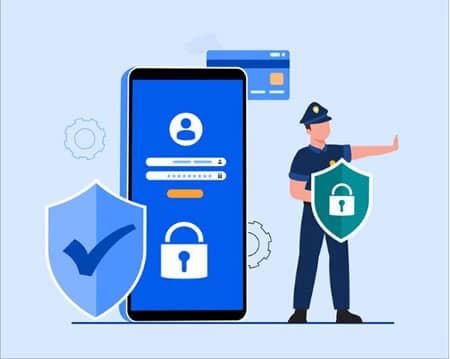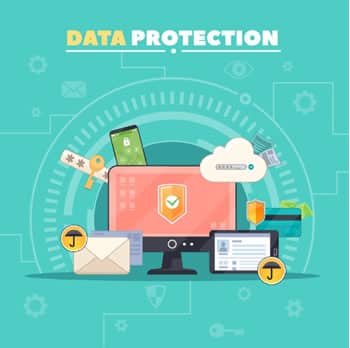Data Privacy Rights and Protection in Digital Forensics Investigations
During digital forensics, the pursuit of justice often intertwines with the protection of fundamental data privacy rights. As digital devices become an integral part of our lives, the vast trove of personal information they contain poses both investigative opportunities and privacy concerns. Striking a balance between these competing interests is crucial for conducting effective digital forensics investigations while upholding the sanctity of individual privacy.
The Significance of Data Privacy in Digital Forensics
Data privacy is a fundamental human right enshrined in various international conventions and national laws. It encompasses the right to control one’s personal information, to be informed about its collection and use, and to prevent unauthorized access or misuse. In the context of digital forensics, data privacy considerations become paramount as investigators delve into the digital footprints individuals leave behind on their devices and online activities.
Balancing Investigative Needs and Privacy Obligations
Digital forensics investigations are often conducted in response to cybercrimes, data breaches, or other incidents that may involve the collection and analysis of personal data. While these investigations are essential for uncovering the truth and bringing perpetrators to justice, they must not come at the expense of individual privacy.
Organizations conducting digital forensics investigations must adhere to a set of principles to ensure that data privacy rights are respected throughout the process:
- Proportionality: The scope of data collection should be proportionate to the specific incident under investigation. Only relevant and necessary data should be gathered, minimizing the intrusion into personal information.
- Minimization: Data retention should be limited to the time necessary for the investigation and potential legal proceedings. Once the investigation is concluded, all collected data should be securely destroyed unless required for legal purposes.
- Transparency: Individuals should be informed about the investigation, the purpose of data collection, and their rights regarding their personal information. Transparency fosters trust and allows individuals to exercise their data privacy rights.
- Security: Collected data must be stored securely to prevent unauthorized access, loss, or misuse. Robust cybersecurity measures should be implemented to safeguard sensitive personal information.
Legal and Regulatory Frameworks
Various legal and regulatory frameworks govern data privacy and its protection in the context of digital forensics investigations. These include:
- Data Protection Laws: General Data Protection Regulation (GDPR) in the EU, data protection act kenya 2019, and other national data privacy laws establish principles for the collection, use, and processing of personal data, including in the context of investigations.
- Search Warrants/Anton Piller orders: In certain jurisdictions, search warrants may be required to obtain legal authorization to search personal devices, particularly if the investigation involves criminal allegations.
- Employment Laws: Employment laws may impose restrictions on the collection and handling of employee data, including personal information stored on personal devices used for work purposes.
Enhancing Data Privacy Protection in Digital Forensics
Several technological advancements can further enhance data privacy protection during digital forensics investigations:
- Data Encryption: Encrypting data stored on personal devices can prevent unauthorized access and disclosure, even if the device is seized for forensic analysis.
- Privacy-Preserving Techniques: Utilizing privacy-preserving techniques, such as anonymization or pseudonymization, can protect sensitive personal information while still allowing for relevant data analysis.
- Cloud-Based Forensics: Cloud-based forensics solutions can provide secure and centralized storage and analysis of digital evidence, reducing the need to physically seize personal devices.
How organizations can help facilitate forensics and data privacy
1. Keeping Company and Personal Data Separate
Organizations collect and store vast amounts of information, ranging from sensitive customer details to confidential employee records. While this data is crucial for business operations, it is equally important to handle it with care and ensure that it is protected from unauthorized access or misuse. A critical step in achieving this is by maintaining a clear distinction between company data and personal data.
Company Data vs. Personal Data: A Clear Distinction
Company data encompasses information related to the organization’s operations, such as financial records, customer lists, intellectual property, and employee performance data. It is owned and controlled by the company and is primarily used for business purposes.
Personal data, on the other hand, pertains to individuals and can include names, addresses, contact information, medical records, and financial details. It is collected from employees, customers, and other stakeholders, and its use is governed by data privacy regulations.
The Importance of Data Separation
Keeping company data and personal data separate offers several benefits:
- Enhanced Privacy Protection: Separating data reduces the risk of accidental disclosure or unauthorized access to personal information. By limiting access to specific individuals or groups, organizations can safeguard sensitive data and minimize the potential for privacy breaches.
- Compliance with Regulations: Data privacy regulations, such as the General Data Protection Regulation (GDPR) in the EU and the California Consumer Privacy Act (CCPA) in the US, mandate that organizations protect personal data and provide individuals with control over its use. Separating data facilitates compliance with these regulations by ensuring that personal information is handled in a transparent and accountable manner.
- Reduced Risk of Data Breaches: Data breaches can have severe consequences for organizations, including financial losses, reputational damage, and legal liabilities. Separating data minimizes the potential impact of a breach by limiting the scope of exposed information.
Strategies for Effective Data Separation
Implementing effective data separation requires a comprehensive approach that encompasses both technical and organizational measures:
- Technical Implementation: Utilize secure storage solutions, such as data encryption and access controls, to protect sensitive data. Implement data loss prevention (DLP) tools to prevent unauthorized data transfer or disclosure.
- Organizational Policies: Develop clear policies and procedures that define how company data and personal data are handled, accessed, and stored. Educate employees on data privacy and security best practices.
- Regular Audits and Reviews: Conduct periodic audits and reviews of data management practices to identify potential vulnerabilities and ensure that data separation protocols are being followed effectively.
2. Implementing & Enforcing BYOD Polices
Data privacy rights are an important consideration for organizations conducting digital forensics investigations involving BYOD (Bring Your Own Device) devices. While organizations have a legitimate interest in investigating potential wrongdoing or security incidents, they must also respect the privacy rights of employees and other individuals whose data may be stored on BYOD devices.
Balancing Data Privacy and Investigative Needs
In conducting a BYOD forensics investigation, organizations should strive to balance the need to collect and analyze relevant evidence with the need to protect employee privacy. This includes:
- Obtaining Informed Consent: Whenever possible, organizations should obtain informed consent from the employee or individual whose device is being investigated. This ensures transparency and allows individuals to understand the scope of the investigation and their rights.
- Minimizing Data Collection: Limit the scope of data collection to only those files or data sources that are directly relevant to the investigation. Avoid collecting unnecessary personal data or information that is not related to the specific incident being investigated.
- Data Segregation: Segregate collected data from other company data and store it securely to prevent unauthorized access or disclosure.
- Clear Data Destruction Policy: Establish a clear data destruction policy to ensure that collected data is securely erased once the investigation is complete and no longer required for legal or compliance purposes.
- Transparency and Communication: Maintain open and transparent communication with employees and affected individuals throughout the investigation process. Provide clear explanations of the investigation’s purpose, scope, and data handling practices.
Legal Requirements and Considerations
Organizations should also consider relevant legal requirements and potential liabilities when conducting BYOD forensics investigations. These may include:
- Data Privacy Laws: Comply with applicable data privacy laws, such as the General Data Protection Regulation (GDPR) in the EU and data protection act kenya 2019 in Kenya. These laws provide individuals with rights to access, control, and erasure of their personal data.
- Employment Laws: Consider employment laws and regulations that may impact data collection and handling practices, such as employee privacy rights and restrictions on accessing personal communications.
- Search Warrants/Anton Piller orders: In certain cases, organizations may need to obtain a search warrant from a court to legally search a personal device. This is particularly important if the device is not owned by the company or if the investigation involves criminal allegations.
- Employee Notification: In some jurisdictions, organizations may be required to notify employees when their personal devices are being investigated.
Conclusion: A Commitment to Justice and Privacy
Data privacy rights are not an impediment to justice; rather, they are a fundamental pillar of a fair and just society. By upholding these rights in the context of digital forensics investigations, organizations can demonstrate their commitment to both the pursuit of justice and the protection of individual privacy. Striking this delicate balance is essential for building trust, ensuring transparency, and upholding the sanctity of personal information in an increasingly digital world.
Here’s some more useful resources on data privacy rights & protection in digital forensics investigations
linkedin.com/pulse/data-privacy-rights-protection-digital-forensics-fu9hf/





